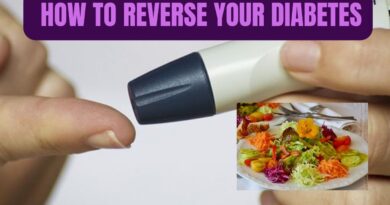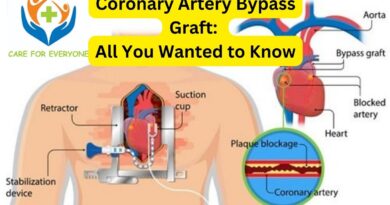How to Lose Your Dangerous Visceral Fat in 2025
Introduction
Lose Your Visceral Fat
Visceral fat, the fat that surrounds our vital organs in the abdominal region, is not just a cosmetic concern. It poses significant health risks, including insulin resistance, diabetes, high blood pressure, and metabolic syndrome. If you’re looking to shed this dangerous fat and improve your overall health, this article will guide you through effective strategies to lose visceral fat faster.
The Dangers of Visceral Fat
Unlike subcutaneous fat, which lies just beneath the skin, visceral fat is metabolically active and releases harmful chemicals into the body. It disrupts hunger and satiety hormones, leading to increased cravings for unhealthy foods. To combat visceral fat, we need to address its underlying causes and adopt a holistic approach to weight loss.
The Impact of Sleep on Visceral Fat
Research suggests that inadequate sleep can significantly contribute to the accumulation of visceral fat. Individuals who sleep less than five hours a night have a 2.5 times higher risk of developing belly fat compared to those who get sufficient sleep. Lack of sleep affects stress hormones, especially cortisol, which leads to increased fat storage in the abdominal area. Prioritizing quality sleep is crucial for reducing visceral fat.
Managing Stress Levels to Reduce Visceral Fat
Stress plays a significant role in the accumulation of visceral fat. When we experience chronic stress, cortisol levels rise, promoting fat storage in the abdominal region. Elevated cortisol levels also disrupt hunger and satiety hormones, making us more prone to overeating and craving unhealthy foods. It is essential to incorporate stress management techniques such as exercise, meditation, and engaging in activities that bring joy and relaxation.
The Role of Diet in Losing Visceral Fat
Diet plays a crucial role in losing visceral fat. To start, it is necessary to eliminate refined and processed sugars from your diet. These carbohydrates are quickly converted into fat, promote inflammation, and contribute to weight gain. Instead, focus on consuming a healthy diet rich in whole foods. Incorporating soluble fiber is particularly beneficial as it slows digestion, promotes satiety, and feeds the beneficial gut bacteria. Foods like flax seeds, sweet potatoes, legumes, whole grains, chia seeds, avocados, fruits, and vegetables are excellent sources of soluble fiber.
The Importance of Exercise for Visceral Fat Loss

Regular exercise is key to losing visceral fat. Engaging in moderate physical exercise and incorporating light weight training can significantly reduce circulating insulin levels and stimulate the use of fatty acids by the liver. Aerobic exercises that increase oxygen intake, such as walking, jogging, and using a treadmill, help burn calories and target visceral fat. Find an exercise routine that you enjoy to make it sustainable and enjoyable.
Harnessing the Power of Probiotics for Visceral Fat Reduction
Adding probiotics to your diet can help improve gut health and promote weight loss, including the reduction of visceral fat. Probiotics are beneficial bacteria found in supplements and fermented foods like yogurt, kefir, sauerkraut, and natto. These bacteria help balance the gut microbiome, boost metabolism, and support overall health. Consider incorporating probiotic-rich foods or supplements into your daily routine.
Intermittent Fasting as an Effective Method
Intermittent fasting is an eating pattern that involves cycling between periods of eating and fasting. This approach can enhance the body’s ability to access fat stores and use them as energy. When combined with exercise, intermittent fasting becomes even more effective for burning visceral fat. Consult with a healthcare professional or a registered dietitian before starting intermittent fasting to ensure it aligns with your specific needs and goals.
The Weight Loss Connection to Visceral Fat
Losing weight is the most effective way to reduce visceral fat. By losing just 10 percent of your body weight, you can potentially lose up to 30 percent of your body fat. As you lose weight, the visceral fat stored in your abdominal region will also decrease. It is crucial to adopt sustainable lifestyle changes that promote healthy weight loss, such as a balanced diet, regular exercise, and stress management.
Conclusion
Visceral fat is a dangerous type of fat that increases the risk of various health conditions. By incorporating healthy lifestyle habits such as quality sleep, stress management, a nutritious diet, regular exercise, probiotics, intermittent fasting, and weight loss, you can effectively reduce visceral fat and improve your overall well-being. Prioritize your health, adopt these strategies, and embark on a journey towards a healthier life.
Frequently Asked Questions (FAQs)
Can I specifically target only my visceral fat for weight loss?
How long does it take to see results in reducing visceral fat?
Can I consume any type of soluble fiber for reducing visceral fat?
Is it necessary to take probiotic supplements for visceral fat loss?
Can I lose visceral fat without exercise?
Please also read the wonderful article from Cleveland clinic website
FOR MORE SUCH ARTICLE CLICK HERE




